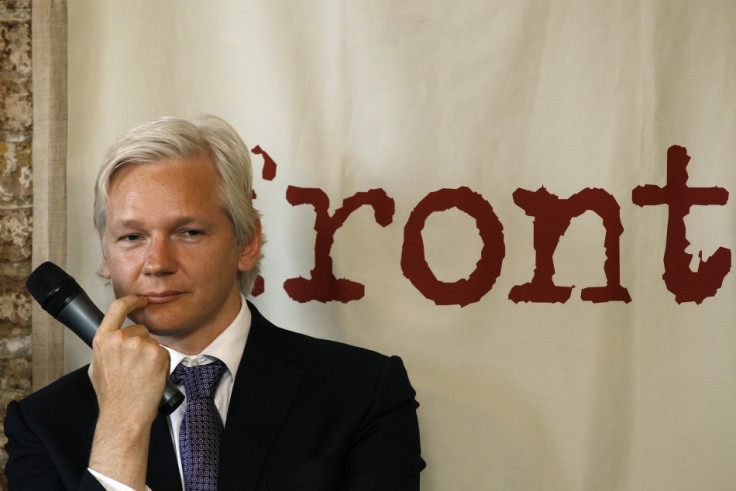Julian Assange Discusses Hacking Scandal

An interview with Julian Assange from December 2009 reveals the Wikileak's founder's view on the NOTW hacking scandal at the time.
The interviewer, Becky Hogge, who has been involved with the Open Rights Group and Open Democracy, points out that the interview was conducted 18 months ago and may not be reflective of Assange's current opinion, due to new information that has come out.
Hogge writes: "This interview was conducted 18 months ago: I make no claim, and nor should anyone else, that the opinions expressed in it (for example, around the News of the World phone hacking scandal) are opinions he holds today."
Assange precedes discussion about news of the world with a point about the privacy of celebrities.
He said: "Celebrities use their position all the time and are paid even to use their celebrity power to influence companies and politics and the general political mood. So actually they are political animals, and they try and build themselves up and build a profile and then spend that profile by doing favours for people in politics or in business. And sometimes they're well paid for doing those favours.
"So, that other people spend effort trying to tear them down and exposing them for who they actually are in their lives, is great. It's fantastic. And if they, if they're unhappy with that, well they can stop trying to live different private lives to public lives."
Assange goes on to discuss NOTW hacking into "celebrities' voicemail boxes" to listen to voicemails messages. "So was this a terrible, terrible thing?" he asked.
Assange said: "Of course it wasn't a terrible, terrible thing. This is possibly a wrong thing for those particular people to do. There's a law of the land and if the land says you shouldn't listen to people's voicemails, then of course the people who did listen to this directly should be treated equally under the law like everyone else.
"But is it a terrible, terrible thing that a newspaper took that end product and maybe turned a little bit of a blind... didn't look too hard into how private investigators were acquiring this material? Not at all. These celebrities were wielding their influence on the public and that's why the public were interested in them.
"In Peru we released 68... maybe 78... over 60 telephone intercepts of politicians speaking to businessmen. And that was the biggest political event in Peru this year according to one of the Peruvian newspapers, and it was on all five major daily front... in all five major dailies' front pages. These were actual telephone intercepts. These weren't voicemail boxes, in fact. So I feel that it was just disgraceful that the Guardian wasted its time on that issue, just disgraceful and all they ended up doing was producing a climate that increased the amount of regulation of actually even more important investigative journalism.
"I mean, the jumping up and down about the fact that News of the World had not actually just reprinted an AP newswire or stolen something from somewhere else or reprinted a press release, but they'd actually done original investigative work about people in this society that its readers were genuinely interested in.
Assange also discusses other topics in the interview, largely revolving around the role of Wikileaks as a publisher.
Hogge added: "Why am I publishing it now? To draw attention to my book, of course, which is published tomorrow. If you think that makes me unscrupulous, that's fine, and I'd agree with you up to a point. But I'd also note that I didn't publish it or try and sell it to anyone the day Julian was arrested and thrown in gaol in December last year, when every news organisation on the planet wanted something - anything - that was fresh on him. That's not just because I'm incompetent at being unscrupulous. I also didn't want to contribute to that kind of rabid, voyeuristic public "discourse", because I don't think it's helpful in the long term."
Details of Hogge's book, Barefoot Into Cyberspace, can be found here.
Follow Joe Rennison on Twitter here.
E-mail your story ideas to j.rennison@ibtimes.co.uk
© Copyright IBTimes 2025. All rights reserved.





















